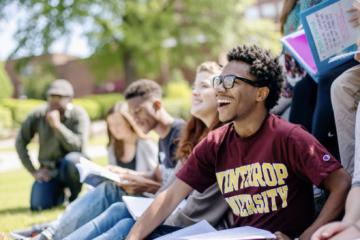In observation of National Human Trafficking Awareness Day on January the 11th, the South Carolina Attorney General released the state’s annual report on human trafficking for 2020 — but is awareness of human trafficking important or helpful?
Attorney General Alan Wilson reported 139 cases of human trafficking and 179 incidents reported in South Carolina in 2020. In order by the number of reports, the counties with the highest rates are Horry County, Charleston County, Greenville County, Richland County and Anderson County. However, Wilson pointed out that these statistics go to show reported trafficking cases in those areas, not necessarily the concentration of victims.
During the news conference, First Lady Peggy McMaster announced January was Human Trafficking Awareness Month in South Carolina. The state task force advisory council that was initiated last year to combat human trafficking will see two expansions this year in the Department of Mental Health and the Department of Alcohol and Other Drug Abuse Services.
One of the primary arguments against this awareness-centered campaign against the trafficking industry is that it does not address the problem at the source, but instead focuses on treating the symptoms. According to the International Labor Organization’s estimate, there are hundreds of thousands of trafficking victims in the U.S., which by South Carolina’s population count puts the number of victims in the thousands, making the reported 139 feel like just a piece of a larger story.
Another point criticism regarding the anti-trafficking efforts is the vast amount of resources expended in the course of rescuing victims. Entire teams are required in order to take in reports, track down sources and information and perform investigations, compared to the relatively smaller number of detectives and officers involved in analyzing other crimes.
However, an important thing to keep in mind is that the nature of human trafficking itself means that the number of perpetrators will often vastly outweigh the number of victims. Even homegrown traffickers only holding one or a few captives will use a number of forensic countermeasures and have a certain level of organized crime.
For an active trafficking ring though, it is a matter of business and money, and most of the ring members are not the type of captors you see on TV shows. Human trafficking rings will sometimes use multiple businesses just to act as cover and serve money laundering purposes, and the white-collar aspect can outweigh the more recognizable type of human traffickers.
When talking about resources dedicated to human trafficking, there is also a level of basic humanity to it. Unlike many other forms of crime, trafficked individuals suffer long-term victimization, and are not exactly willingly released by their captors. Repeat offense rapists and murderers rack up numbers of victims, but a single trafficked individual might spend years or even a lifetime in captivity, so while it doesn’t show in the statistics very well, each rescued person counts.
So, when it comes to whether campaigning against human trafficking is worth the resources required, the answer is a resounding yes. If anything, that branch of investigation doesn’t have nearly enough funding. There are millions of people who are victims of the industry and the number of solved trafficking cases barely begin to scratch the number of rings that are yet to be found.
The most vulnerable victims to trafficking are those in poverty or an unstable living situation, have previously suffered violence or other trauma, and involvement with substance addiction. By demographic, LGBTQ+ people and people of color are the most frequent victims, but trafficking can happen to anyone.
Common signs of human trafficking to look out for are would-be employers not providing an understandable contract or requiring fees for the ‘opportunity’ of work, someone developing a relationship that is overwhelming, fast-moving, and asymmetric (e.g., large difference in age or financial status) or with someone they solely contact through social media, someone showing signs of abuse or living with a person who is not their legal guardian and job opportunities that are too good to be true or require the person to move a long distance away without being provided details about the job.
If you are a victim to or a witness of possible trafficking, call the National Human Trafficking Hotline at 1-888-373-7888, text 233733, or go to their website at https://humantraffickinghotline.org/.
Photo by Cooper Beck




